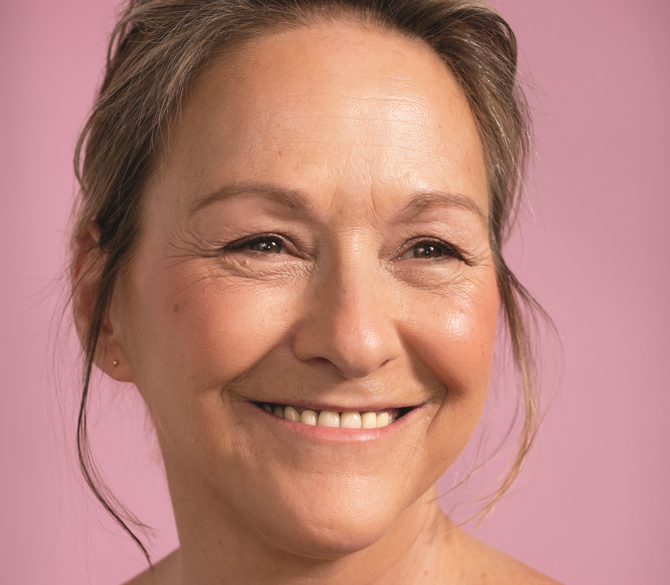We’re learning more and more about how personality can affect mental health in our later years; here are some insights into how to cope your way to a long, happy life
By Wendy Haaf
If you’ve ever met an 80-something who seems to live life with the gusto that might be rare even in a much younger person, you may very well have wondered how you, too, could tap into that fountain of youth. Why do some people seem decades younger than their years?
In his book Successful Aging: A Neuroscientist Explores the Power and Potential of Our Lives (Allen Lane, 2020), Daniel Levitin argues that personality plays a major role in maintaining good mental health and living a happy and productive life. He lays out the case that, alongside healthy practices, the factors that exert the strongest influence on how we age are, in fact, five personality traits: openness, conscientiousness, sociability, curiosity and resilience. Some research suggests that, on average, openness declines after age 50, while conscientiousness peaks in mid-life and starts sliding downward between 50 and 70. So if you’ve always been more comfortable with the same schedule, doing the same things the same way, and you’re not particularly open to change, does that mean you could be more vulnerable to declining mental health as you age?
It’s not that cut and dried, says Jennifer Bethell, an affiliate scientist at the Toronto Rehabilitation Institute, which helps people overcome age-related and other health challenges to live active, more independent lives. While Bethell concedes there are many studies that have established statistical links between some personality traits and various health outcomes, “they don’t prove cause and effect,” she stresses.
That’s because most such studies simply use data collected from a large number of people over the course of an initial assessment, then follow them forward to look for specific outcomes, Bethell explains. A noted example is the 1960 study “Project Talent,” which gathered characteristic information on hundreds of thousands of American high school students and then linked specifics of individual participants’ personality traits with their development of dementia decades later. Consequently, while personality may influence health in a more obvious way—for instance, if you’re conscientious, you’re probably more apt to exercise and eat a healthy diet—“it could be that the relationships between personality traits and health are driven by deeper factors. For example, it may be that our genes predict both our personality and our risk for disease.”
Researchers are currently trying to understand the why behind these links, testing theories about diet, drinking and other lifestyle factors, as well as underlying biological mechanisms such as inflammation and stress. Bethell, too, is conducting such a study, hers aimed at trying to better understand “if and how loneliness explains the relationship between specific personality traits and brain health,” she says.
Still, while we’re not yet able to say for certain whether actively trying to foster certain qualities can help us maintain long-term health, there’s evidence that we can strengthen some of the traits that are known to help us adapt to the changes that can come with aging.
Here’s what we know about two of the more malleable of our qualities.
Self-compassion
“Personality traits that are going to be more adaptive in older adulthood are things that help people deal with the types of stress that tend to become more common in that stage of life, which may be things we can’t necessarily control, such as an increase in health problems or functional limitations,” observes Heather Herriot, a researcher at Montreal’s Concordia University whose focus is on behavioural pathways to successful aging. “Self-compassion is a good example of that.” That characteristic is what allows us to grant ourselves the same kindness and understanding that we would offer a close friend, rather than, for example, ignoring our pain or passing harsh self-judgement. “It’s all about being able to accept experiences instead of perhaps negatively ruminating on specific issues, which can really serve to make us feel worse,” Herriot says.
To find out whether self-compassion is a boon for taking challenges in stride, Herriot says, “we looked at older adults and the stressors they were dealing with—such as life regrets—along with their functional abilities in daily life—such as being able to do the dishes and go for groceries.” What she and her colleagues found was that, indeed, “those who had higher levels of stressors felt more stressed,” she says. Subjects who, in addition, scored low on a measurement of self-compassion had high levels of the stress-related hormone cortisol, “which can be associated with poor health outcomes over time,” Herriot explains.
By contrast, the researchers found that those with greater self-compassion had lower levels of cortisol.
But could self-compassion become even more important after age 80? To explore this theory, the Concordia team conducted a second study: “We found that people in advanced old age who were more self-compassionate were less likely to develop chronic illnesses over the span of our four-year observation; they also generally had fewer health problems that they experienced daily,” she says.
Fortunately, as Herriot explains, “there’s a lot of research that has shown you’re not stuck with your level of self-compassion— there are interventions, such as seeing a therapist, that can help you work on that trait and improve it over time.” Research further suggests that cultivating self-compassion can have more immediate payoffs than a healthy old age, according to Patricia Williams, a Victoria-based teacher of mindful self-compassion who spoke to Good Times in June 2020. These rewards can include decreased levels of distress and pain in the face of health challenges, Williams said.
Further, those with more self-compassion tend to have higher levels of self-efficacy and therefore may be more likely to engage in proactive health behaviours. “So they eat better, they exercise more, they sleep better and, if they have a chronic disease, they attend to it better,” Williams explained.
Resilience
Those possessing more self-compassion are also more likely to score higher on another ability that can help them cope with the vagaries of age: resilience. This trait—which helps us to maintain mental health during times of stress—can involve knowing when to let go of unrealistic objectives and instead replace them with others that are reachable yet just as meaningful.
“There’s a lot of research in older adults showing that being able to either re-engage with new goals or disengage from unattainable ones is associated with better lifestyle outcomes,” Herriot explains. “It’s not that you give up all the time; it’s that you’re able to disengage when something is not attainable in the way it once was, or maybe you’ve gathered more information and determined that it’s now unattainable.” For instance, you might play a competitive sport but, following an injury, it becomes apparent you will no longer be able to participate at the same level. With an eye towards realistic objectives, you could then choose to switch to a new activity that doesn’t put the same demands on the injured body part, or perhaps you could shift direction and join a just-for-fun league.
While resilience was once considered more or less fixed, researchers have come to realize that, in fact, we can strengthen it, just as we can learn to become more compassionate with ourselves. For one, the way older adults frame past experiences has been linked to resilience and the ability to adapt well to changing circumstances. In a study conducted at St. Thomas University in Fredericton, N.B., researchers held life-story interviews with seniors and found that those who scored highest on a scale of resilience told stories from their pasts that focused more on their own sense of agency, and that reflected stronger beliefs in their ability to successfully face future adversity. By contrast, those deemed less resilient tended to fixate on negative or unresolved childhood memories and to recall stories in which they portrayed themselves as victims and passive reactors.
Some experts now recognize reviewing and evaluating past events in our lives to be a stage of development that occurs in our latter decades, just as learning to talk is one of the developmental stages of early childhood. “I think this phase, arguably, is essential to positive mental and emotional health in later life,” says William Randall, a professor of gerontology at St. Thomas University, one of the investigators in the previously noted life-story study and the author of several books, including In Our Stories Lies Our Strength: Aging, Spirituality, and Narrative (Kindle Direct Publishing, 2019).
One of the exercises people can do to help facilitate this step is to complete what Randall calls a life inventory, a chart with columns dedicated to specific life periods (one per decade, for instance) that you then fill in with details about places you’ve lived, key people in your life, general activities and major events. If you need a bit of inspiration and encouragement to get you started or to help direct you, you can join life-writing and storytelling workshops sometimes offered at community centres and libraries, or you can even go online to see how others may have tackled this type of project.
“As we get older, sometimes we forget some of the things we have done, the places we have been and so forth,” Randall says. “Just getting more in touch with the what of our lives can be really liberating: ‘Oh, I’d forgotten about that. Gee, I’ve done a lot,’” he says, describing the insight that can arise once people begin to fill in some of the life-inventory blanks. “It can give a person who might otherwise be feeling kind of down or negative a sense of, ‘You know what? I’m proud of the full, weird life that I’ve lived.’
“Our hope is that if people realize just how much story material they have and then start to reflect on what their own stories tell them about themselves, an element of inner wonderment will emerge,” he says.
Many other factors—including financial resources, physical health and social support—also play key roles in resilience, Randall acknowledges, explaining that we’re only beginning to explore how so-called narrative resilience fits into the equation. However, he says, “I think that as we get older, a good strong story can play a part in meeting the challenges of aging in a resilient way.”
Photo by Jonathan Borba on Unsplash





